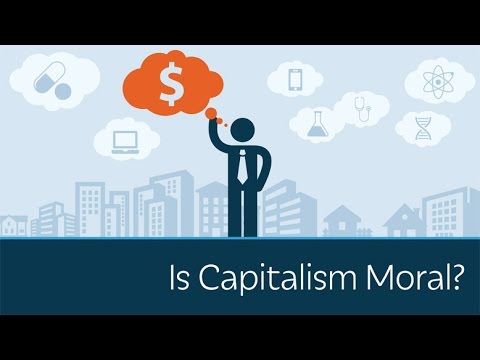
Today, a great portion of our society puts a large value on equal outcomes and the morality of considering our fellow man, but are equal outcomes really the best way to develop a moral society? Karl Marx, Immanuel Kant, and others argue that individuals cannot be trusted with their own self-interest, but how are we, as a society, to find individuals with no self-interest whatsoever? In a discussion between Milton Friedman and Phil Donahue, Friedman outlines that there is not a moral means on which to construct a system of societal structure better than capitalism. He argues that even in socialist societies, people are not rewarded for their virtues. He also argues that societies are not progressing because of mandates from the government, but by individuals pursuing their own self-interest. This leads to man serving their fellow man, instead of the government supporting their fellow man. To hear Milton Friedman’s full argument on the differences between socialism and capitalism, watch this short three minute video.
Walter Williams argues that it is more moral for people to serve their fellow man and earn a claim on what he produces rather than to do nothing and still receive a claim on what is produced. He also says “The free market calls for voluntary action between individuals. There’s no coercion. In a free market, if I want something from you, then I have to do something for you.” In a capitalist society, if people are happy with a business and continue to support it, the business will grow and thrive. If the people are no longer pleased with a business, they can stop giving their money to the business, and it will naturally fail. Walter Williams outlines this well in this educational five minute video.
For a more in depth look on the moral defense of capitalism from Ayn Rand, who developed the philosophy of Objectivism, watch this 38 minute video.


recent comments